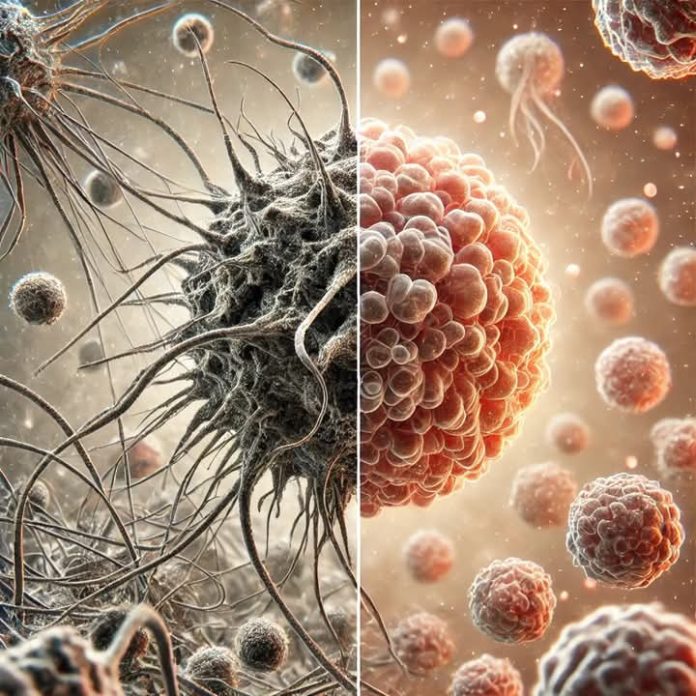In a landmark development that could reshape the future of cancer treatment, researchers in Korea have unveiled a revolutionary approach to combating the disease. Moving away from traditional methods that focus on killing cancer cells—often leading to severe side effects—the scientists have devised a technique to revert malignant cells back to their healthy state. This breakthrough promises to transform not only cancer therapy but also the broader medical landscape.
A Revolutionary Shift in Cancer Treatment
Cancer treatments have historically relied on methods such as chemotherapy, radiation, and immunotherapy to destroy cancer cells. While these techniques have saved lives, they often come at a significant cost to healthy tissues, causing debilitating side effects and reducing patients’ quality of life. The new discovery offers a paradigm shift: instead of targeting cancer cells for destruction, the focus is on restoring their normal, healthy function.
The researchers achieved this by creating a digital model of the gene network in normal cells. This model allowed them to identify key molecular regulators responsible for cellular differentiation—the process by which cells develop into specialized types. By suppressing these critical molecules in colon cancer cells, the team succeeded in reprogramming the malignant cells into a normal-like state.
This method effectively eliminates the cancerous properties of the cells without destroying them, offering a less invasive and potentially safer alternative to conventional therapies.
Tested and Proven in Multiple Stages
The researchers conducted rigorous testing at multiple levels:
1. Digital Simulations: The team utilized advanced computational models to identify molecular targets and predict outcomes.
2. Molecular Experiments: Laboratory studies validated the findings by demonstrating the ability to suppress specific molecules and restore normal cell behavior.
3. Animal Trials: In mice, the technique showed promising results, reinforcing its potential for broader application in humans.
Potential Applications Beyond Colon Cancer
While the initial focus was on colon cancer, the researchers extended their digital modeling program to study similar molecular pathways in mouse brain cells. This suggests that the technique could be adapted for other cancer types, significantly broadening its impact.
The implications of this discovery reach far beyond oncology. By unraveling the mechanisms of cell differentiation and reprogramming, the research could pave the way for advances in regenerative medicine and other fields that rely on cellular manipulation.
A New Era of Cancer Therapy
This groundbreaking approach offers several advantages over traditional methods. By focusing on restoring the health of cancer cells rather than eradicating them, the technique could lead to treatments with fewer side effects and improved patient outcomes.
“This discovery opens up a new horizon in cancer therapy,” the research team stated. “Our goal is not just to eliminate the disease but to restore health, offering a better quality of life for patients.”
Although the research is still in its early stages, the findings are being hailed as a significant step forward in the fight against cancer. The team is optimistic that their innovative approach will lead to a new generation of therapies that prioritize healing over destruction.
Future Prospects
With further development and clinical trials, this method could revolutionize how cancer is treated globally. It holds the promise of more effective, less harmful treatments that could dramatically improve outcomes for millions of patients.
The research not only signals a new direction in oncology but also serves as a reminder of the potential of science and technology to address humanity’s most pressing health challenges.
For more details on the study, visit: Advanced Science Study.




